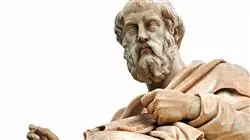University certificate
The world's largest faculty of humanities”
Description
A program that will guide you through transcendental properties of being in a multidisciplinary and 100% online experience”

What is science and what is it not? This is the opening question to Epistemology. There are many schools of thought that defend the underlying relationship between Metaphysics and the development of empirical knowledge through a unified conception of reality, establishing, as such, the limits of ontology. Philosophy of Science arises from this basis, thanks to which, human beings apply certain meanings to concepts based on the analysis and evaluation of procedural issues that precede it: a strategy, a rule or a series of steps that result in an ultimate goal and its achievement in an effective manner.
Thanks to the exhaustive work of a group of experts in the Humanities, TECH has been able to launch this complete and comprehensive program in Epistemology and Philosophy of Science. It is an academic experience through which students will be able to intensively go through the most relevant issues in Metaphysics over time, and delve into the relationship of this discipline in the development of knowledge and the conception of nature. Furthermore, students will have the opportunity to delve into the origins of philosophy and retrace its history from Humanism and the Renaissance (with special emphasis on its leading authors), to conclude by analyzing the relationship between philosophy, experimental science and the environment that surrounds it.
To this end, they will have 1,500 hours of diverse material, including an exclusive seminar where they will deal with current bioethical problems and their philosophical transcendence, as well as their application in everyday life. It is, therefore, a unique academic opportunity to access a training program through which graduates will work in the search for the most logical answers about the universe and existence in a 100% online format, without fixed schedules and at their own convenience.
Would you like to delve into knowledge as a scientific and philosophical concept? Enroll in this professional master’s degree and become an expert in Epistemology in just 12 months”
This professional master’s degree in Epistemology and Philosophy of Science contains the most complete and up-to-date academic program on the market. Its most notable features are:
- Practical cases presented by experts in Philosophy and the Humanities
- The graphic, schematic, and practical contents with which they are created, provide practical information on the disciplines that are essential for professional practice
- Practical exercises where self-assessment can be used to improve learning
- Its special emphasis on innovative methodologies in Pediatric Orthopedics
- Theoretical lessons, questions to the expert, debate forums on controversial topics, and individual reflection assignments
- Content that is accessible from any fixed or portable device with an Internet connection
The professional master’s degree also includes a specific module dedicated to the history of modern philosophy, so you can gain in-depth knowledge of its origin and the characteristics that define it”
The program’s teaching staff includes professionals from the sector who contribute their work experience to this training program, as well as renowned specialists from leading societies and prestigious universities.
The multimedia content, developed with the latest educational technology, will provide the professional with situated and contextual learning, i.e., a simulated environment that will provide immersive specialization programmed to learn in real situations.
This program is designed around Problem-Based Learning, whereby the professional must try to solve the different professional practice situations that arise throughout the program. For this purpose, the student will be assisted by an innovative interactive video system created by renowned and experienced experts.
What is the connection between philosophy and experimental science? In this program you will find the answer to this and other questions"

You will have access to an exclusive seminar on bioethical problems where you will delve into aspects of principlism, utilitarianism and functionalism"
Objectives
Philosophy encompasses a very large concept and requires a specialized understanding of its culture to practice it in a useful and effective way. For this reason, TECH and its team of experts have developed this professional master’s degree, with the aim of guiding graduates in their search for the vital answers out in the world. For this purpose, they will have 1,500 hours of the best theoretical and practical material, as well as a multitude of additional content with which they can personally delve into issues they consider most relevant for their epistemological development.

Do you want to get started in the analysis of cases in ethics according to Jonsen? If this is one of your objectives, TECH will provide you with everything you need to achieve it in just 1,500 hours of study”
General Objectives
- Acquire a rigorous philosophical method, shaped by the order in thought and the capacity for dialog, as well as putting it into practice
- Possess the adequate tools to study philosophical subjects
- Conduct fruitful scientific work
- Structure the various philosophical contents that will become evident in daily work environments
- Develop a mental structure and appropriate conceptual frameworks that structure philosophical criteria rooted in the Christian tradition, including principles, methods and contents of their own
- Shape students' specific identity as Christian thinkers
Specific Objectives
Module 1. Metaphysics I
- Explain the constitutive metaphysical principles of being in the static sense
- Explain the transcendental properties of being
- Explain the categories of being by pointing out their operative nature in examples of everyday experience
- Explain the analogy of being, pointing out its operative nature in examples of everyday experience
- Analyze everyday reality to highlight metaphysical principles
Module 2. Metaphysics II
- Explain the constitutive metaphysical principles of being in the static sense
- Explain the transcendental properties of being
- Explain the categories of being by pointing out their operative nature in examples of everyday experience
- Explain the analogy of being, pointing out its operative nature in examples of everyday experience
- Analyze everyday reality to highlight metaphysical principles
Module 3. Metaphysics III
- Pose the question of God as a philosophical problem
- Critically present the historical itinerary of philosophical reflections on God
- Philosophically discuss the existence and nature of absolute being
- Understand the role that God plays in the world and in the human life
- Possess sufficient arguments to explain the existence and essence of God
Module 4. Philosophy of Knowledge I
- Understand why knowledge is both a scientific and a philosophical subject
- Explain the constitutive outlines in Philosophy of knowledge
- Present the history of the philosophical problem of knowledge in its main exponents
- Critically analyze the fundamental epistemological perspectives
- Reflect on the experiences acquired as learners in daily life
Module 5. Philosophy of Knowledge II
- Systematically expose the main philosophical problems concerning human knowledge and its truth value
- Discern and distinguish between scientific and non-scientific knowledge
- Understand the difference between perceptual knowledge and intellectual knowledge
- Understand the complementary nature between perceptual knowledge and intellectual knowledge
- Critically evaluate contemporary positions based on the main philosophical problems concerning human knowledge
Module 6. Philosophy of Nature
- Carry out a historical and systematic review of nature
- Discover the object of study in Philosophy of Nature
- Engage in dialog with various contemporary understandings of corporeal entities on the basis of a historical and systematic vision of nature
- Analyze nature in order to highlight its metaphysical structure
- Discover the truth in light of the study of nature from a philosophical perspective
Module 7. History of Modern Philosophy
- Explain the context in which philosophical reflection arises in modern times
- Outline the outstanding approaches of some relevant authors of the time and their influence on philosophy
Module 8. Philosophy and Experimental Science
- Philosophically approach problems arising from science (from ancient to contemporary)
- Understand the evolution of the concepts used in science and how more and more accurate answers to scientific questions
Module 9. Philosophy of Science
- Understand the meaning of science in philosophy
- Differentiate between science and technique
- Explain the theoretical foundations and methodology of modern science as a specific form of knowledge production
- Explain the interrelation present in the theoretical foundations and methodology of modern sciences with technology
- Explain the influences of the theoretical foundations and methodology in modern sciences concerning the configuration of the world today
Module 10. Philosophy of Language
- Analyze the phenomenon of language and its components
- Understand language as an object of study in Philosophy
- Differentiate between sign, signified and signifier
- Systematically discuss the main epistemological problems on the subject of human language raised by research conducted in the 20th century
Module 11. Philosophical Synthesis
- Synthetically and articulately explain the main topics in metaphysics, philosophy of nature, philosophy of anthropology, philosophy of knowledge, ethics and philosophical theology, as well as a monographic philosophy research paper
Module 12. Seminar on Bioethical Problems
- Analyze the concept and generalities of bioethics as a discipline from an interdisciplinary approach
- Explain the main bioethical tenets and principles
- Know some deliberative methodologies to address bioethical problems
- Identify bioethical dilemmas in specific cases
- Reflect on the current and future relevance of bioethics in daily and professional life

The best program in the academic market to address the philosophical synthesis from metaphysical concepts to nuances of Theology”
Professional Master's Degree in Epistemology and Philosophy of Science
The understanding of human reality is a complex task that demands different tools and currents of thought to shape the theories that try to explain the why of things. At TECH Global University we identified an excellent opportunity for professional qualification in the study of scientific knowledge, so we designed the most complete and updated Professional Master's Degree in Epistemology and Philosophy of Science in the educational market. Our program is oriented to teach a rigorous method of research, shaped by the order of thought and the capacity for dialogue. In this way, the professional will obtain adequate instruments to learn philosophical subjects, which will guarantee him/her to perform with solvency during daily practice.
Postgraduate Certificate in Epistemology and Philosophy of Science 100% online
The postgraduate program in Epistemology and Philosophy of Science has sophisticated thematic axes that will allow students to develop efficient mental structures, through which they will be able to correctly internalize the conceptual background provided, forming a strong philosophical criterion that has as its basis the different currents of thought, principles and criteria of this branch of knowledge. In addition, throughout the program we will provide pedagogical tools that will allow the individual to develop, if desired, in the educational field. On the other hand, upon graduation, the student will have the necessary knowledge to explain in detail the main topics of metaphysics, philosophy of nature, philosophical anthropology and philosophy of knowledge, among other aspects of great academic value.







